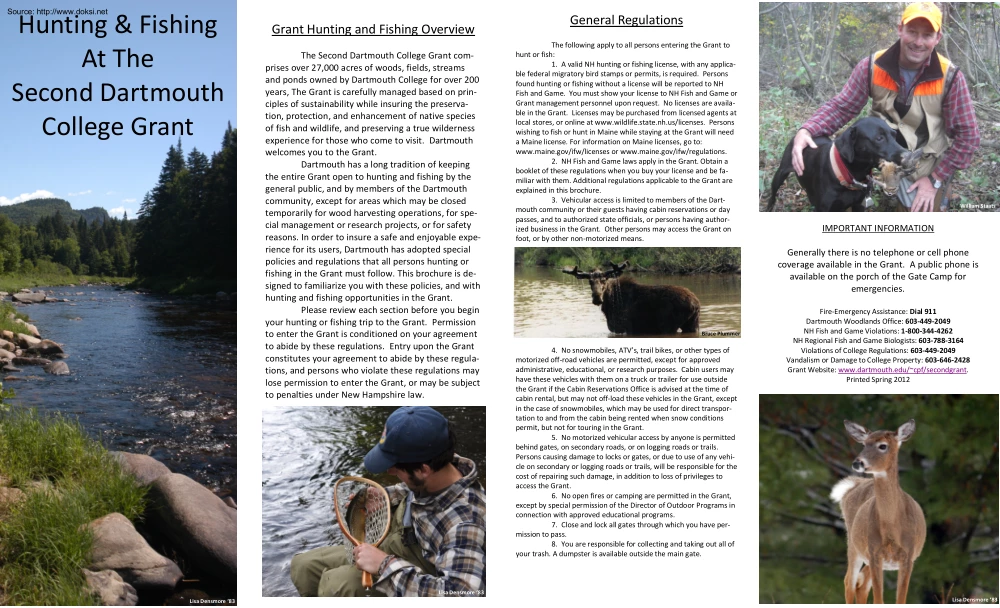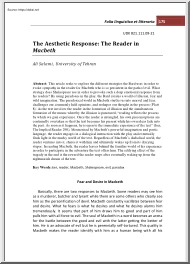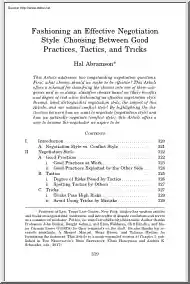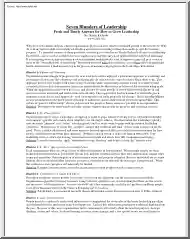A doksi online olvasásához kérlek jelentkezz be!

A doksi online olvasásához kérlek jelentkezz be!
Nincs még értékelés. Legyél Te az első!
Mit olvastak a többiek, ha ezzel végeztek?
Tartalmi kivonat
Source: http://www.doksinet Hunting & Fishing At The Second Dartmouth College Grant Grant Hunting and Fishing Overview The Second Dartmouth College Grant comprises over 27,000 acres of woods, fields, streams and ponds owned by Dartmouth College for over 200 years, The Grant is carefully managed based on principles of sustainability while insuring the preservation, protection, and enhancement of native species of fish and wildlife, and preserving a true wilderness experience for those who come to visit. Dartmouth welcomes you to the Grant. Dartmouth has a long tradition of keeping the entire Grant open to hunting and fishing by the general public, and by members of the Dartmouth community, except for areas which may be closed temporarily for wood harvesting operations, for special management or research projects, or for safety reasons. In order to insure a safe and enjoyable experience for its users, Dartmouth has adopted special policies and regulations that all persons hunting
or fishing in the Grant must follow. This brochure is designed to familiarize you with these policies, and with hunting and fishing opportunities in the Grant. Please review each section before you begin your hunting or fishing trip to the Grant. Permission to enter the Grant is conditioned on your agreement to abide by these regulations. Entry upon the Grant constitutes your agreement to abide by these regulations, and persons who violate these regulations may lose permission to enter the Grant, or may be subject to penalties under New Hampshire law. General Regulations The following apply to all persons entering the Grant to hunt or fish: 1. A valid NH hunting or fishing license, with any applicable federal migratory bird stamps or permits, is required Persons found hunting or fishing without a license will be reported to NH Fish and Game. You must show your license to NH Fish and Game or Grant management personnel upon request. No licenses are available in the Grant Licenses may be
purchased from licensed agents at local stores, or online at www.wildlifestatenhus/licenses Persons wishing to fish or hunt in Maine while staying at the Grant will need a Maine license. For information on Maine licenses, go to: www.mainegov/ifw/licenses or wwwmainegov/ifw/regulations 2. NH Fish and Game laws apply in the Grant Obtain a booklet of these regulations when you buy your license and be familiar with them. Additional regulations applicable to the Grant are explained in this brochure. 3. Vehicular access is limited to members of the Dartmouth community or their guests having cabin reservations or day passes, and to authorized state officials, or persons having authorized business in the Grant. Other persons may access the Grant on foot, or by other non-motorized means. William Staats IMPORTANT INFORMATION Generally there is no telephone or cell phone coverage available in the Grant. A public phone is available on the porch of the Gate Camp for emergencies. Bruce Plummer
4. No snowmobiles, ATV’s, trail bikes, or other types of motorized off-road vehicles are permitted, except for approved administrative, educational, or research purposes. Cabin users may have these vehicles with them on a truck or trailer for use outside the Grant if the Cabin Reservations Office is advised at the time of cabin rental, but may not off-load these vehicles in the Grant, except in the case of snowmobiles, which may be used for direct transportation to and from the cabin being rented when snow conditions permit, but not for touring in the Grant. 5. No motorized vehicular access by anyone is permitted behind gates, on secondary roads, or on logging roads or trails. Persons causing damage to locks or gates, or due to use of any vehicle on secondary or logging roads or trails, will be responsible for the cost of repairing such damage, in addition to loss of privileges to access the Grant. 6. No open fires or camping are permitted in the Grant, except by special permission
of the Director of Outdoor Programs in connection with approved educational programs. 7. Close and lock all gates through which you have permission to pass 8. You are responsible for collecting and taking out all of your trash. A dumpster is available outside the main gate Fire-Emergency Assistance: Dial 911 Dartmouth Woodlands Office: 603-449-2049 NH Fish and Game Violations: 1-800-344-4262 NH Regional Fish and Game Biologists: 603-788-3164 Violations of College Regulations: 603-449-2049 Vandalism or Damage to College Property: 603-646-2428 Grant Website: www.dartmouthedu/~cpf/secondgrant Printed Spring 2012 Lisa Densmore ‘83 Lisa Densmore ‘83 Lisa Densmore ‘83 HUNTING IN THE GRANT Source: http://www.doksinet The Second College Grant is home to several species of small game, including grouse, woodcock, snowshoe hare, and turkey. Big game species include deer, bear, and moose Several ongoing wildlife management projects in co-operation with NH Fish and Game are directed at
improving populations and habitat for woodcock, grouse, and deer. The Grant benefits from funds for wildlife management provided by the Cook Family Second College Grant Wildlife Habitat Fund established by Russell A. Cook ’53 and his family Donations to this fund by persons hunting Lisa Densmore ‘83 in the Grant are welcome. Persons interested in more information about special wildlife projects or donations to the Cook Fund may contact the Dartmouth College Development Office at 603-646-4053. In addition to NH hunting laws, the following regulations apply to hunting in the Grant: 1. Road hunting is strictly prohibited Road hunting is defined as driving Grant roads to purposefully or incidentally shoot at game of any type from a vehicle, or to exit the vehicle and shoot game from the road surface. 2. On any Grant road open to motorized vehicular travel (e.g, roads not closed by internal gates) no person may shoot from the road, shoot at any game in the road, or shoot across the
road. On gated secondary roads, hunting is permitted, but hunters are asked to be mindful that such roads may be used by others for hiking, biking, or other non-hunting purposes. 3. No hunting is permitted near active logging operations when equipment is being operated or loggers are present, or in any other location likely to be unsafe to persons or property. 4. No firearm may be discharged within 15 feet of any road open to motorized vehicular travel, within 15 feet of any marked trail, or within 300 feet of any cabin. 5. State law prohibits discharge of a firearm from any motorized vehicle. Only empty guns are permitted in vehicles or cabins 6. Two articles of “Hunter Orange” clothing are recommended 7. Baiting for deer, bear, or any other species is not permitted. 8. Only persons with cabin reservations or guests staying at a cabin may employ guides in the Grant. Guides are not permitted vehicle access for scouting unless accompanied by cabin renters with a current
reservation. 9. From the beginning of bear season until the end of regular-firearms deer season (generally September 1 through early December) vehicle day passes are not available. Vehicle passes are limited to those with current cabin reservations. 10. During deer season, the Gate Camp and Gate are staffed. All vehicles must enter and register through the main gate off Route 16 in Wentworth Location. Use of the Greenough Pond Gate or Northern (Hellgate) Gate prior to registration is not permitted. 11. Any deer or bear taken when the Gate Camp is staffed must be reported to the gatekeeper upon departure. 12. All hunters are responsible for retrieving any game, including deer, moose, or bear, without expecting assistance of College staff, other parties staying at the Grant, or access through locked gates. Off-road vehicles, including ATV’s or snowmobiles, may not be used to retrieve game. 13. Target shooting, or skeet or trap shooting is not permitted near cabins or in undesignated
areas. The gravel pits located on the Dead Diamond Road just north of the Management Center, just south of Half Moon Beach, and on the Swift Diamond Road between Alder Brook and Johnson Brook may be used for these purposes. All shell casings, targets, or other debris must be cleaned up and removed. Targets must be located with sand behind the target in a safe line of fire and may not be placed in trees. FISHING IN THE GRANT Fishing in the Grant is available in the Swift Diamond River from the westerly border of the Grant to its confluence with the Dead Diamond River near Peaks cabin, in the Dead Diamond River from Hellgate downstream to its confluence with the Magalloway River, and in the Magalloway River itself, as well as in Hellgate Pond and Lamb Valley Pond, and in numerous other smaller streams and tributaries of these waters, The waters of the Grant contain some of the last remaining populations of large wild brook trout in New Hampshire, and in order to protect these unique
populations, special regulations apply. Landlocked salmon are occasionally caught in the Dead Diamond River, and rainbow trout are occasionally caught in the Swift Diamond. Dartmouth is making a concerted effort to prevent the spread of non-native invasive species into the Grant, such as Eurasian Milfoil, Didymo or “Rock Snot,” and smallmouth bass. These invasive species harm fish and wildlife populations and habitat, and are almost impossible to eliminate once they are established. These invasive species are present already in numerous lakes and rivers in Maine, New Hampshire, Vermont, and in other New England states, and are spread by human activity including hunting, fishing, canoeing, kayaking, or other activities where contact with water is involved. To protect our wild trout populations and to prevent the spread of invasive species like Milfoil, Didymo and smallmouth bass, the following fishing regulations apply in the Grant: 1. All fishing equipment or boating equipment
must be clean and thoroughly dried after the previous use before entering the Grant. All items having previous contact with water bodies outside the Grant, including rods, Lisa Densmore ‘83 reels, lines, waders, boots, nets, anchors, ropes, propellers, canoes, kayaks, paddles, or float tubes, must be checked and disinfected at the Didymo Wash Station located at the Gate Camp before being used in the Grant. Instructions are provided at the Wash Station. 2. Felt soled waders, or other felt soled footwear, are not allowed in the Grant. 3. When studded footwear is worn, it must be removed before entering any cabin. 4. From the confluence of the Dead Diamond and Magalloway River near the southerly end of the airstrip, upstream to the confluence of the Swift Diamond and Dead Diamond rivers near Peaks cabin, and on that portion of the Magalloway located in New Hampshire upstream of its confluence with the Dead Diamond, only single barblesshook lures or flies may be used. No worms or bait
are allowed All trout must be released unharmed 5. In Lamb Valley Brook, Loomis Valley Brook, and Alder Brook, wild trout regulations apply. Only single barbless-hook lures or flies may be used. No worms or bait are allowed. All trout must be released unharmed These waters are open to fishing January 1 to Labor Day only. 6. Any fish found with a tag or antenna wire must be released unharmed as soon as possible. These fish are part of active scientific studies to improve fishing in the Grant. The date, location, size and condition of the fish when caught should be reported to NH Fish and Game. If you catch a tagged fish, call the Regional Fisheries Biologist at NH Fish and Game at 603-788-3164. Persons returning tagged fish to the water will be provided with available scientific information about the fish. If a fish with a tag or antenna is found or killed accidentally, the above information, together with the tag or radio transmitter, must be returned to any Grant Management personnel
or to NH Fish and Game. 7. No live fish may be brought into the Grant or used as bait. 8. Any yellow perch, bass, pickerel, pike, crappie, sunfish, carp or goldfish caught in the Grant should be killed and not returned to the water. The date, location, size and condition of any of these non-native species caught in the Grant should be reported to any Grant Management personnel, or to the Regional Fisheries Biologist at NH Fish and Game at 603-788-3164. 9. The following provisions are voluntary at this time. Persons fishing in the Grant are strongly encouraged to: A. Practice “catch and release” of all trout and salmon. B. If you keep fish, follow a voluntary two fish per person per day limit. C. Use single barbless hooks on all flies, lures, or bait hooks. This can be done by pinching down the barb with pliers. D. During late July and the month of August, or whenever low water or high water temperature conditions prevail, fishing for brook trout or salmon is discouraged due to high
stress and increased mortality of any fish that are caught. E. Fill out a creel census survey and leave it at the depository located on the porch of the Gate Camp. As a part of these measures, Dartmouth is actively involved in a co-operative research project with NH Fish and Game, Trout Unlimited, and other local conservation organizations to tag and track wild brook trout in the Grant, and to obtain and analyze DNA samples from over 500 trout. You can help by purchasing a radio telemetry tag or by making a tax deductible contribution to the project. If you purchase a tag, your name will be assigned to the fish receiving the tag, and you will be provided with periodic information about your fish, including how big it is, where it goes, and what happens to it, and you will receive a copy of the final report. Some fish tagged in the Grant have traveled over 90 miles in one tracking season! For more information about this project, including how to participate, contact the Woodlands Office
at 603-449-2049 or the Dartmouth-Sebago TU Telemetry Project at 207-831-9232 or 207-838-5898
or fishing in the Grant must follow. This brochure is designed to familiarize you with these policies, and with hunting and fishing opportunities in the Grant. Please review each section before you begin your hunting or fishing trip to the Grant. Permission to enter the Grant is conditioned on your agreement to abide by these regulations. Entry upon the Grant constitutes your agreement to abide by these regulations, and persons who violate these regulations may lose permission to enter the Grant, or may be subject to penalties under New Hampshire law. General Regulations The following apply to all persons entering the Grant to hunt or fish: 1. A valid NH hunting or fishing license, with any applicable federal migratory bird stamps or permits, is required Persons found hunting or fishing without a license will be reported to NH Fish and Game. You must show your license to NH Fish and Game or Grant management personnel upon request. No licenses are available in the Grant Licenses may be
purchased from licensed agents at local stores, or online at www.wildlifestatenhus/licenses Persons wishing to fish or hunt in Maine while staying at the Grant will need a Maine license. For information on Maine licenses, go to: www.mainegov/ifw/licenses or wwwmainegov/ifw/regulations 2. NH Fish and Game laws apply in the Grant Obtain a booklet of these regulations when you buy your license and be familiar with them. Additional regulations applicable to the Grant are explained in this brochure. 3. Vehicular access is limited to members of the Dartmouth community or their guests having cabin reservations or day passes, and to authorized state officials, or persons having authorized business in the Grant. Other persons may access the Grant on foot, or by other non-motorized means. William Staats IMPORTANT INFORMATION Generally there is no telephone or cell phone coverage available in the Grant. A public phone is available on the porch of the Gate Camp for emergencies. Bruce Plummer
4. No snowmobiles, ATV’s, trail bikes, or other types of motorized off-road vehicles are permitted, except for approved administrative, educational, or research purposes. Cabin users may have these vehicles with them on a truck or trailer for use outside the Grant if the Cabin Reservations Office is advised at the time of cabin rental, but may not off-load these vehicles in the Grant, except in the case of snowmobiles, which may be used for direct transportation to and from the cabin being rented when snow conditions permit, but not for touring in the Grant. 5. No motorized vehicular access by anyone is permitted behind gates, on secondary roads, or on logging roads or trails. Persons causing damage to locks or gates, or due to use of any vehicle on secondary or logging roads or trails, will be responsible for the cost of repairing such damage, in addition to loss of privileges to access the Grant. 6. No open fires or camping are permitted in the Grant, except by special permission
of the Director of Outdoor Programs in connection with approved educational programs. 7. Close and lock all gates through which you have permission to pass 8. You are responsible for collecting and taking out all of your trash. A dumpster is available outside the main gate Fire-Emergency Assistance: Dial 911 Dartmouth Woodlands Office: 603-449-2049 NH Fish and Game Violations: 1-800-344-4262 NH Regional Fish and Game Biologists: 603-788-3164 Violations of College Regulations: 603-449-2049 Vandalism or Damage to College Property: 603-646-2428 Grant Website: www.dartmouthedu/~cpf/secondgrant Printed Spring 2012 Lisa Densmore ‘83 Lisa Densmore ‘83 Lisa Densmore ‘83 HUNTING IN THE GRANT Source: http://www.doksinet The Second College Grant is home to several species of small game, including grouse, woodcock, snowshoe hare, and turkey. Big game species include deer, bear, and moose Several ongoing wildlife management projects in co-operation with NH Fish and Game are directed at
improving populations and habitat for woodcock, grouse, and deer. The Grant benefits from funds for wildlife management provided by the Cook Family Second College Grant Wildlife Habitat Fund established by Russell A. Cook ’53 and his family Donations to this fund by persons hunting Lisa Densmore ‘83 in the Grant are welcome. Persons interested in more information about special wildlife projects or donations to the Cook Fund may contact the Dartmouth College Development Office at 603-646-4053. In addition to NH hunting laws, the following regulations apply to hunting in the Grant: 1. Road hunting is strictly prohibited Road hunting is defined as driving Grant roads to purposefully or incidentally shoot at game of any type from a vehicle, or to exit the vehicle and shoot game from the road surface. 2. On any Grant road open to motorized vehicular travel (e.g, roads not closed by internal gates) no person may shoot from the road, shoot at any game in the road, or shoot across the
road. On gated secondary roads, hunting is permitted, but hunters are asked to be mindful that such roads may be used by others for hiking, biking, or other non-hunting purposes. 3. No hunting is permitted near active logging operations when equipment is being operated or loggers are present, or in any other location likely to be unsafe to persons or property. 4. No firearm may be discharged within 15 feet of any road open to motorized vehicular travel, within 15 feet of any marked trail, or within 300 feet of any cabin. 5. State law prohibits discharge of a firearm from any motorized vehicle. Only empty guns are permitted in vehicles or cabins 6. Two articles of “Hunter Orange” clothing are recommended 7. Baiting for deer, bear, or any other species is not permitted. 8. Only persons with cabin reservations or guests staying at a cabin may employ guides in the Grant. Guides are not permitted vehicle access for scouting unless accompanied by cabin renters with a current
reservation. 9. From the beginning of bear season until the end of regular-firearms deer season (generally September 1 through early December) vehicle day passes are not available. Vehicle passes are limited to those with current cabin reservations. 10. During deer season, the Gate Camp and Gate are staffed. All vehicles must enter and register through the main gate off Route 16 in Wentworth Location. Use of the Greenough Pond Gate or Northern (Hellgate) Gate prior to registration is not permitted. 11. Any deer or bear taken when the Gate Camp is staffed must be reported to the gatekeeper upon departure. 12. All hunters are responsible for retrieving any game, including deer, moose, or bear, without expecting assistance of College staff, other parties staying at the Grant, or access through locked gates. Off-road vehicles, including ATV’s or snowmobiles, may not be used to retrieve game. 13. Target shooting, or skeet or trap shooting is not permitted near cabins or in undesignated
areas. The gravel pits located on the Dead Diamond Road just north of the Management Center, just south of Half Moon Beach, and on the Swift Diamond Road between Alder Brook and Johnson Brook may be used for these purposes. All shell casings, targets, or other debris must be cleaned up and removed. Targets must be located with sand behind the target in a safe line of fire and may not be placed in trees. FISHING IN THE GRANT Fishing in the Grant is available in the Swift Diamond River from the westerly border of the Grant to its confluence with the Dead Diamond River near Peaks cabin, in the Dead Diamond River from Hellgate downstream to its confluence with the Magalloway River, and in the Magalloway River itself, as well as in Hellgate Pond and Lamb Valley Pond, and in numerous other smaller streams and tributaries of these waters, The waters of the Grant contain some of the last remaining populations of large wild brook trout in New Hampshire, and in order to protect these unique
populations, special regulations apply. Landlocked salmon are occasionally caught in the Dead Diamond River, and rainbow trout are occasionally caught in the Swift Diamond. Dartmouth is making a concerted effort to prevent the spread of non-native invasive species into the Grant, such as Eurasian Milfoil, Didymo or “Rock Snot,” and smallmouth bass. These invasive species harm fish and wildlife populations and habitat, and are almost impossible to eliminate once they are established. These invasive species are present already in numerous lakes and rivers in Maine, New Hampshire, Vermont, and in other New England states, and are spread by human activity including hunting, fishing, canoeing, kayaking, or other activities where contact with water is involved. To protect our wild trout populations and to prevent the spread of invasive species like Milfoil, Didymo and smallmouth bass, the following fishing regulations apply in the Grant: 1. All fishing equipment or boating equipment
must be clean and thoroughly dried after the previous use before entering the Grant. All items having previous contact with water bodies outside the Grant, including rods, Lisa Densmore ‘83 reels, lines, waders, boots, nets, anchors, ropes, propellers, canoes, kayaks, paddles, or float tubes, must be checked and disinfected at the Didymo Wash Station located at the Gate Camp before being used in the Grant. Instructions are provided at the Wash Station. 2. Felt soled waders, or other felt soled footwear, are not allowed in the Grant. 3. When studded footwear is worn, it must be removed before entering any cabin. 4. From the confluence of the Dead Diamond and Magalloway River near the southerly end of the airstrip, upstream to the confluence of the Swift Diamond and Dead Diamond rivers near Peaks cabin, and on that portion of the Magalloway located in New Hampshire upstream of its confluence with the Dead Diamond, only single barblesshook lures or flies may be used. No worms or bait
are allowed All trout must be released unharmed 5. In Lamb Valley Brook, Loomis Valley Brook, and Alder Brook, wild trout regulations apply. Only single barbless-hook lures or flies may be used. No worms or bait are allowed. All trout must be released unharmed These waters are open to fishing January 1 to Labor Day only. 6. Any fish found with a tag or antenna wire must be released unharmed as soon as possible. These fish are part of active scientific studies to improve fishing in the Grant. The date, location, size and condition of the fish when caught should be reported to NH Fish and Game. If you catch a tagged fish, call the Regional Fisheries Biologist at NH Fish and Game at 603-788-3164. Persons returning tagged fish to the water will be provided with available scientific information about the fish. If a fish with a tag or antenna is found or killed accidentally, the above information, together with the tag or radio transmitter, must be returned to any Grant Management personnel
or to NH Fish and Game. 7. No live fish may be brought into the Grant or used as bait. 8. Any yellow perch, bass, pickerel, pike, crappie, sunfish, carp or goldfish caught in the Grant should be killed and not returned to the water. The date, location, size and condition of any of these non-native species caught in the Grant should be reported to any Grant Management personnel, or to the Regional Fisheries Biologist at NH Fish and Game at 603-788-3164. 9. The following provisions are voluntary at this time. Persons fishing in the Grant are strongly encouraged to: A. Practice “catch and release” of all trout and salmon. B. If you keep fish, follow a voluntary two fish per person per day limit. C. Use single barbless hooks on all flies, lures, or bait hooks. This can be done by pinching down the barb with pliers. D. During late July and the month of August, or whenever low water or high water temperature conditions prevail, fishing for brook trout or salmon is discouraged due to high
stress and increased mortality of any fish that are caught. E. Fill out a creel census survey and leave it at the depository located on the porch of the Gate Camp. As a part of these measures, Dartmouth is actively involved in a co-operative research project with NH Fish and Game, Trout Unlimited, and other local conservation organizations to tag and track wild brook trout in the Grant, and to obtain and analyze DNA samples from over 500 trout. You can help by purchasing a radio telemetry tag or by making a tax deductible contribution to the project. If you purchase a tag, your name will be assigned to the fish receiving the tag, and you will be provided with periodic information about your fish, including how big it is, where it goes, and what happens to it, and you will receive a copy of the final report. Some fish tagged in the Grant have traveled over 90 miles in one tracking season! For more information about this project, including how to participate, contact the Woodlands Office
at 603-449-2049 or the Dartmouth-Sebago TU Telemetry Project at 207-831-9232 or 207-838-5898




